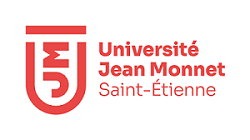Mechanisms of Ultrashort Laser-Induced Fragmentation of Metal Nanoparticles in Liquids: Numerical Insights.
Résumé
Femtosecond laser-induced fragmentation of gold nanoparticles in water is examined. Numerical calculations are performed to elucidate the roles of thermal and electrostatic effects due to electron emission in the corresponding decomposition mechanisms. The obtained results demonstrate that particles smaller than a well-defined size R* melt at smaller fluences than the ones required for electrostatic decomposition. The limiting size depends on the absorption coefficient calculated as a function of particle radius, which depends on laser wavelength and on the optical properties of the particle and the background environment. To decompose particles with radii larger than R*, a considerable increase in laser fluence is required. In this case, thermomechanical effects become prevailing. Both the calculated range of particle sizes to be decomposed by the considered laser pulses and the corresponding fluences agree with several experimental measurements.

